Zarif: US attempts to extend Iran's arms embargo, invoke sanctions snapback mechanism will go nowhere
Iran says a US resolution seeking to extend an arms embargo against the Islamic Republic will not clinch support at the UN Security Council, stressing that Washington has no legal right to invoke a snapback mechanism to reinstate sanctions against Tehran under the 2015 nuclear deal that the US unilaterally left in 2018.
"Legally speaking, the United States is no position to use the snapback [mechanism]. The three European allies of the United States also explicitly stated at a previous meeting of the UN Security Council that the United States could not use this mechanism," Iranian Foreign Minister Mohammad Javad Zarif told reporters on the sidelines of a cabinet meeting on Wednesday.
Regarding the US efforts to convene a Security Council meeting to extend Iran's arms embargo, due to expire on October 18 under the terms of the landmark nuclear deal, Zarif said the Americans have been consulting with the whole world on a "very long, sharp-worded and far-fetched" resolution on some issues for about three months.
The top Iranian diplomat said the Americans did their best and traveled to various countries at the highest levels of the State Department, including the secretary of state himself, during the coronavirus outbreak, but they have failed to garner support for the resolution.
Zarif then pointed to a reported watered down new resolution by the US, which is said to comprise fewer terse paragraphs in place of the earlier 13-page hardline draft circulated among members.
He said the US administration has no respect for the intelligence of others and thinks that if they change an article from five pages to five lines, members of the Security Council would think that the content of the article has changed.
The top Iranian diplomat rejected the US draft resolution as illegal, adding that Washington wants to use the mechanism of the Security Council to destroy the council itself.
"This resolution will not secure the votes and even the number of votes will be very small. It is almost certain that we will not see a new resolution," he added.
He said that in the days leading up to the US withdrawal from the nuclear deal, officially known as the Joint Comprehensive Plan of Action (JCPOA), former US National Security Advisor John Bolton, who architected and engineered the US withdrawal from the agreement, explicitly said his country had left the accord and thus had no right to use the snapback mechanism.
"If the United States makes the snapback work, the move is devoid of any legal value, and any result from this snapback will be deemed worthless and will have no effect in the eyes of anyone," he said.
The US has stepped up attempts aimed at extending the UN arms ban on Iran that is set to expire as part of the JCPOA, which has been endorsed by UNSC Resolution 2231.
Despite the changes in the new US resolution, Security Council members are still expected to reject the effort, which seeks to extend the arms embargo on Iran indefinitely.
“If the goal is still an indefinite extension of the embargo without any other concessions to Tehran, I still think China and Russia will veto this,” said Richard Gowan, UN director at the International Crisis Group.
Russia and China are two of the Security Council’s five permanent members, who have veto rights, and among the remaining parties to the JCPOA. The resolution needs support from nine of 15 votes to pass.
The administration of US President Donald Trump has repeatedly threatened to trigger the so-called snapback provisions of the 2015 nuclear deal if it cannot secure an arms embargo extension.
Since leaving the JCPOA, the US has been resorting to its maximum pressure campaign against Iran by reinstating its sanctions and persuading others to follow its suit.
The Iranian foreign minister's Wednesday remarks echoed those by President Hassan Rouhani who said earlier in the day that the US will most likely fail in its push to extend the UN arms embargo on Tehran and will face isolation at the Security Council.
“We have high hopes that the United States will be defeated and will witness its own isolation,” Rouhani said at a cabinet meeting.
“Our position is clear in all circumstances and if such a resolution is passed against part of UNSC Resolution 2231, it means a gross violation of the JCPOA, and those advocating this [violation] and working to make it happen will be responsible for the consequences," he added.
US clings to personal positions to show support for its illegal bid
Separately on Wednesday, Zarif reacted to the US' desperate attempts to justify its struggle to illegally extend the arms embargo on Iran, saying it clings to personal positions as regional consensus.
"US is so desperate to show support for its struggle to illegally extend arms restrictions on Iran that it clings to the personal position of GCC SG—obtained thru coercion—as regional consensus. All knew that most in the region—even in GCC—do NOT subscribe to this," said the top Iranian diplomat in a tweet.
He then substantiated his remarks by bringing excerpts of an interview with Mutlaq bin Majed al-Qahtani, a senior Qatari Foreign Ministry official, who said the [Persian] gulf Cooperation Council's positions are usually decided and announced at foreign ministerial meetings, and that the latest stance of the GCC’s General Secretariat does not reflect the positions of member states.
The Qatari official was referring to a letter sent by the GCC -- comprising of Bahrain, Kuwait, Oman, Qatar, the United Arab Emirates and Saudi Arabia -- to the Security Council, urging it to extend the UN arms embargo on Iran.
Reacting to the GCC move on Sunday, Iran’s Foreign Ministry Spokesman Abbas Mousavi rejected as “unrealistic” the GCC call for extension of Iran arms embargo.
UN: 2024 deadliest year for aid workers amid genocide in Gaza
Gaza health official warns of hospital shutdowns within 48 hours
Israel kills 5 more paramedics in southern Lebanon: Health ministry
Iran to launch ‘new, advanced’ centrifuges in response to IAEA resolution: AEOI
Yemen fires hypersonic missile at Israeli airbase
VIDEO | New Delhi chokes under toxic smog as air quality remains at hazardous levels
VIDEO | Press TV's news headlines
VIDEO | ICC's arrest warrant for Netanyahu to worry Western politicians: Former British diplomat







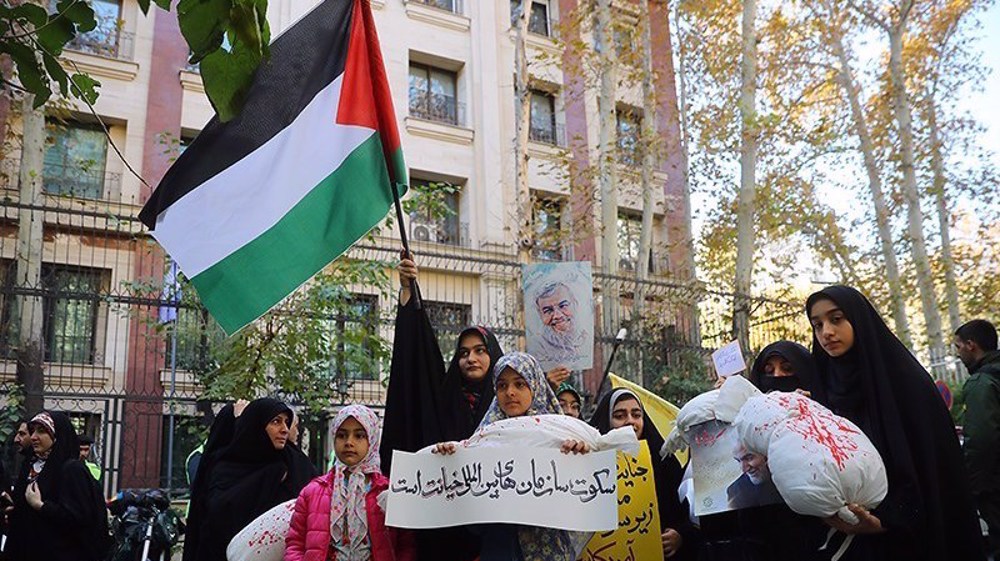
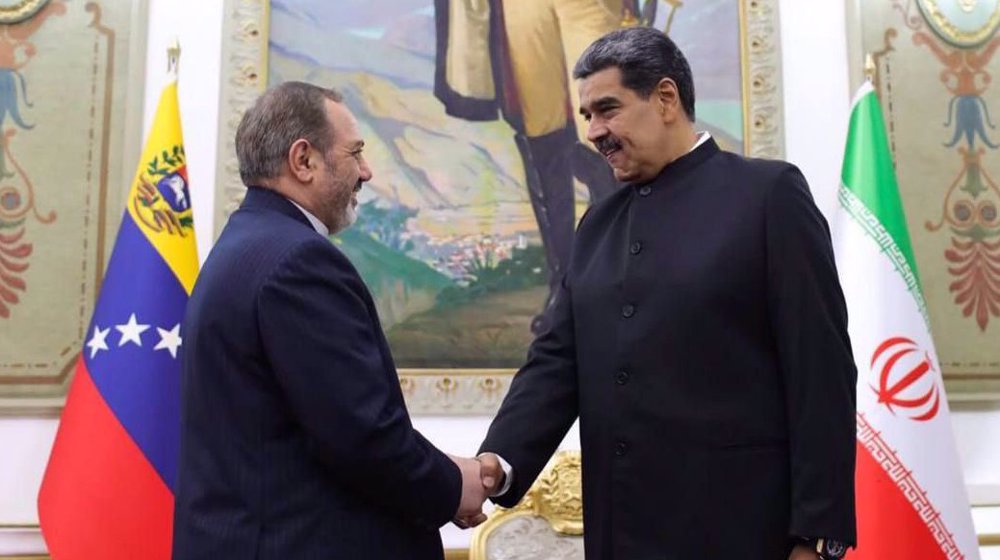
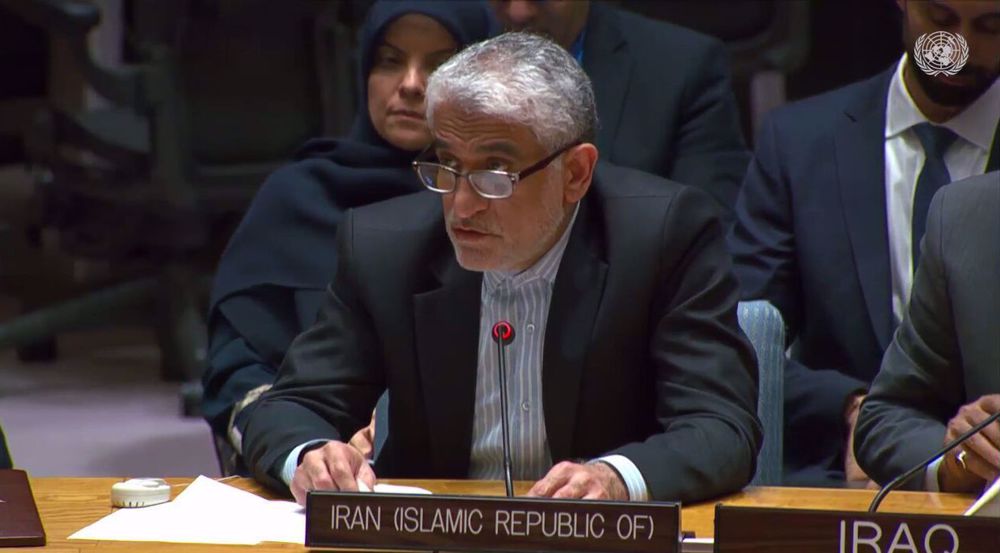



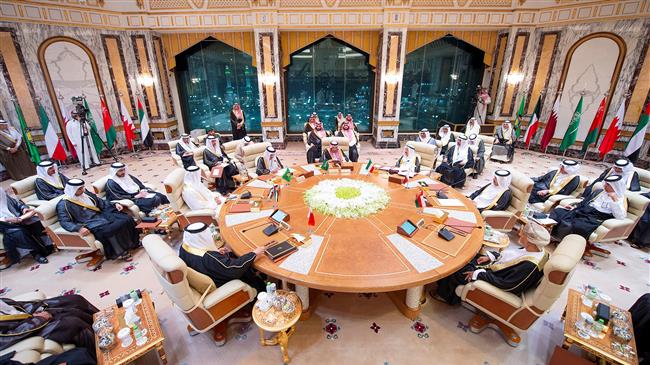
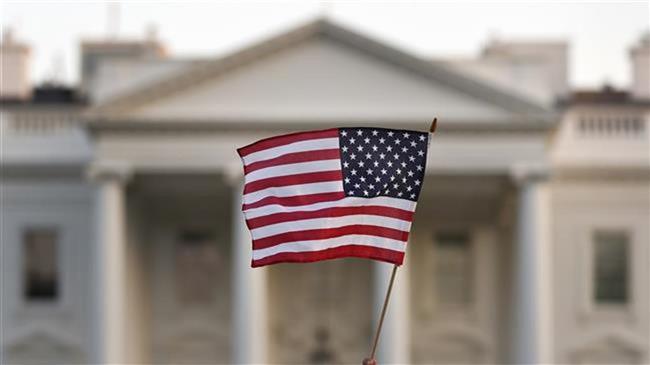

 This makes it easy to access the Press TV website
This makes it easy to access the Press TV website